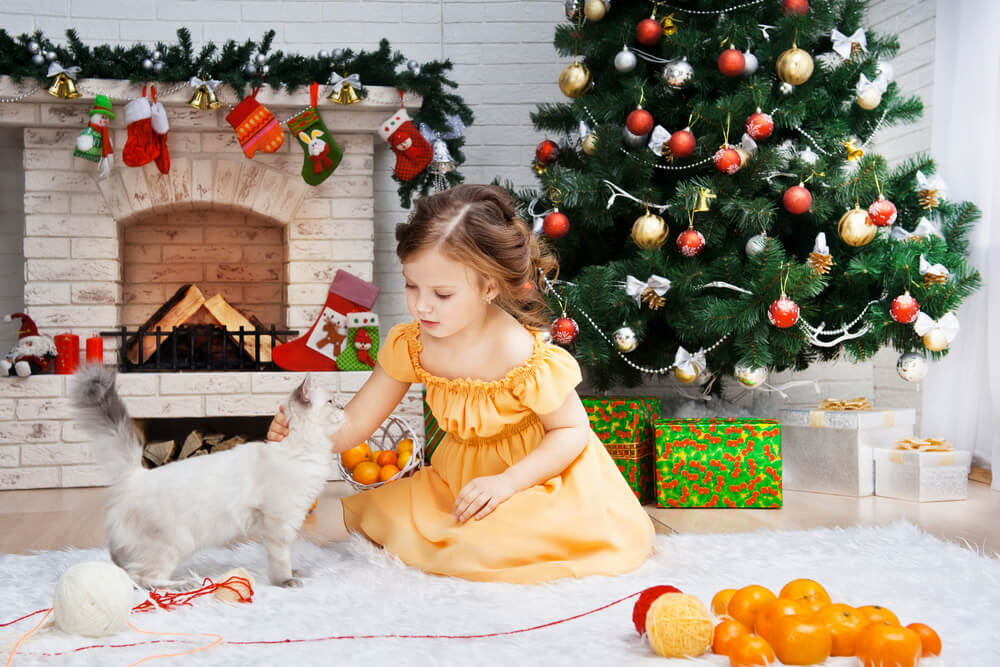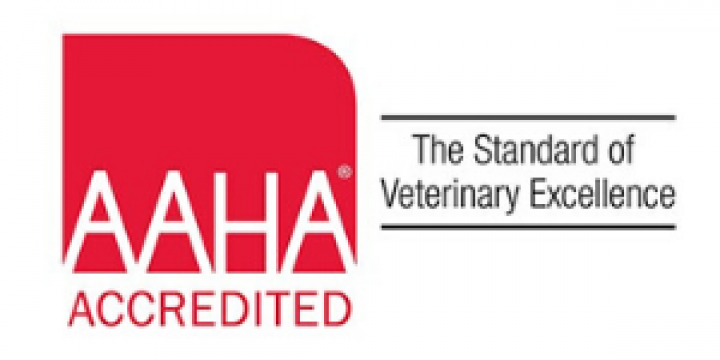
The holiday season is the busiest time of year for many pet owners. Unfortunately, the season can also be a busy time here at Tennessee Avenue Animal Hospital, because our team handles a surge of holiday-related pet emergencies.
To help you and your pet avoid frightening and unnecessary events, our veterinarians have composed a five-step prep list to help ensure this remains your most wonderful time of the year.
#1: Request your pet’s care updates and refills in advance
If you suddenly realize close to the holiday that your pet is out of their prescription food or their daily medication or medications needed for special occasions (e.g., anti-anxiety medications for noise or visitor-related stress), or needs an additional vaccine before they can be boarded at your preferred facility, you may be left with limited options. Our practice may be closed for the holiday break to ensure our hard-working team can spend time with their families and pets, and medications may be out of stock or shipping delayed.
Anticipate your pet’s holiday care needs and contact the Tennessee Avenue Animal Hospital team in the weeks before any major holiday to ensure your pet has what they need.
#2: Ensure your pet’s identification and microchip information are up to date
Many pets go missing during the holiday season, and if they have no proper identification, they may never be reunited with their owners. Ensure your pet wears a well-fitted collar with current identification tags. We recommend listing multiple contacts on your pet’s tag to improve their odds of a safe return. If your pet is microchipped, contact the chip manufacturer to ensure the number is registered to your name and your information is current, so you will be contacted when your lost pet is located. If your pet isn’t microchipped, contact our team to schedule a simple outpatient microchip procedure.
Finally, when you’re hosting visitors, ensure all gates and doors are closed, and supervise your pet’s activity. Nervous pets who may be a flight risk should be confined to a safe room or crate until your company departs.
#3: Keep curious pets out of the kitchen
While we all love to include our pets in our daily activities, the holiday kitchen is no place for pets. Tantalizing aromas lure in hungry dogs and cats and lead to potentially dangerous behaviors, such as stealing food from countertops, tripping their owners, spilling hot dishes, and knocking over trash cans. These antics can harm not only owners, but also pets, and lead to pet emergencies such as toxicity, pancreatitis, lacerations from broken glass, and intestinal obstruction from swallowing inedible items.
For your pet’s safety, and everyone else’s, keep your pet confined to a crate, small room, or behind a secure pet gate until meal prep and cleanup are complete. If you do allow your pet to join you at the holiday dinner table, keep them on a short leash, and never share any toxic or harmful foods.
#4: Display harmful decorations out of your pet’s reach
Holiday decor puts everyone in a festive mood. Unfortunately, curious pets prefer to celebrate by playing with or ingesting these novel items, which can lead to serious injury or death. Restrict your pet’s access to decorated areas or choose pet-friendly alternatives. Popular holiday items hazardous to pets include:
- Candles — Flickering flames can burn paws and singe whiskers, while rough play or wagging tails can knock over the burning display and cause a fire.
- String lights — Cats love to chew and bat sparkling lights, which can cause electric shock or painful oral burns.
- Plants — Lilies, holly, yew, mistletoe, and azaleas are poisonous to pets. Keep these displays out of reach or substitute artificial greenery.
- Essential oils and liquid potpourri — Many essential oils are toxic and can seriously injure pets when inhaled, ingested, or absorbed through the skin.
- Ornaments and breakable items — Pets often mistake these gleaming items for toys, resulting in painful lacerations to their paws and mouth.
- Small figurines — Small items that your pet swallows can be a choking hazard or lodge in the intestinal tract and require life-saving emergency surgery.
- Christmas tree stands — Pets may drink the water, which can cause digestive upset.
#5: Teach visitors how to safely interact with your pet

Pet-loving holiday guests will naturally gravitate toward your adorable pet and try to interact, but paparazzi-style enthusiasm can be overwhelming and scary for some dogs and cats. Help visitors understand your pet’s preferences and to respect their space by setting clear rules of engagement, such as:
- Allowing the pet to approach the guest
- Petting or scratching the pet on the chest and sides instead of reaching for the head or face
- Supervising children around pets
- Giving the pet space when they choose to walk away or avoid greetings
- Leaving the pet alone while they are eating, drinking, sleeping, or playing with a toy
- Explaining any unique pet quirks or preferences (e.g., no children or men, no direct eye contact)
Such simple instructions can prevent pets from feeling threatened, which may cause them to bite or scratch in self-defense.
Preventing pet holiday mishaps begins with careful planning, so include your pet’s physical and emotional health and safety on your seasonal to-do list. And, if that list includes updated wellness care and vaccines, medication and food refills, or advice on how to help your pet stay calm and comfortable amid the holiday chaos, contact the Tennessee Avenue Animal Hospital team. For unexpected holiday emergencies, contact our local and trusted veterinary 24/7/365 emergency and critical care partners.

